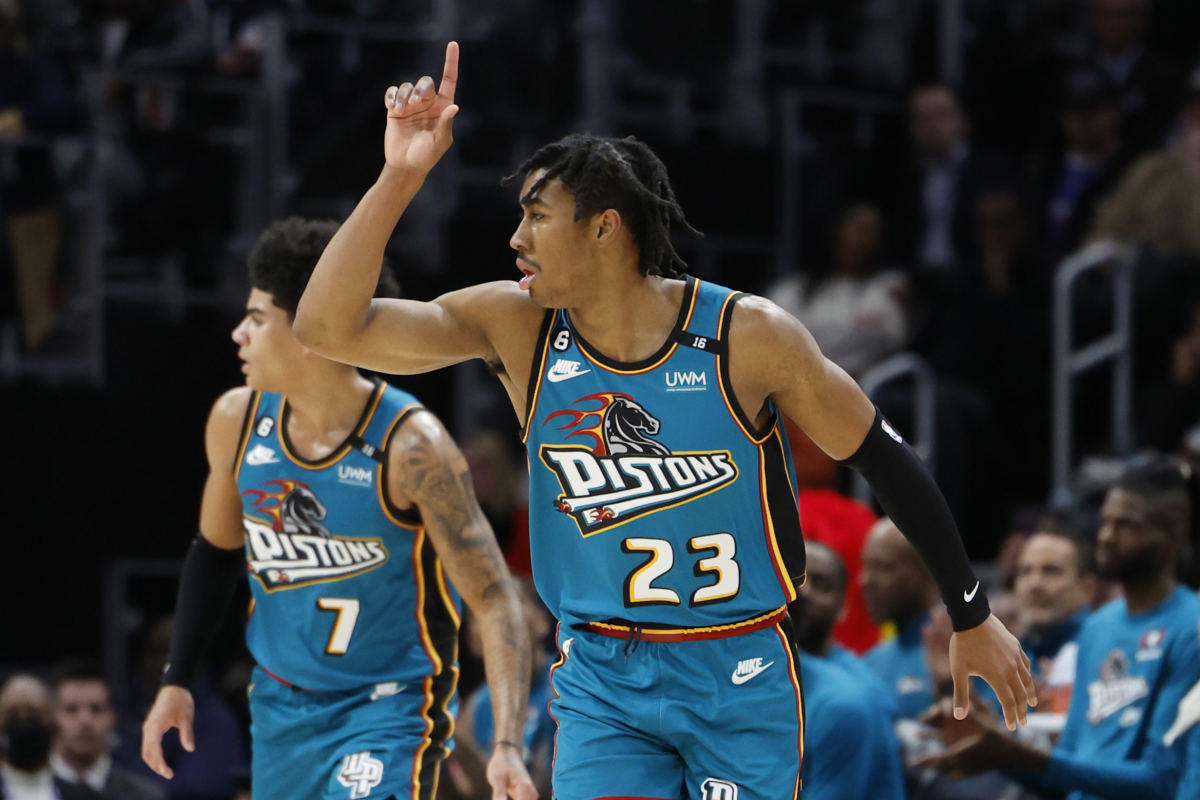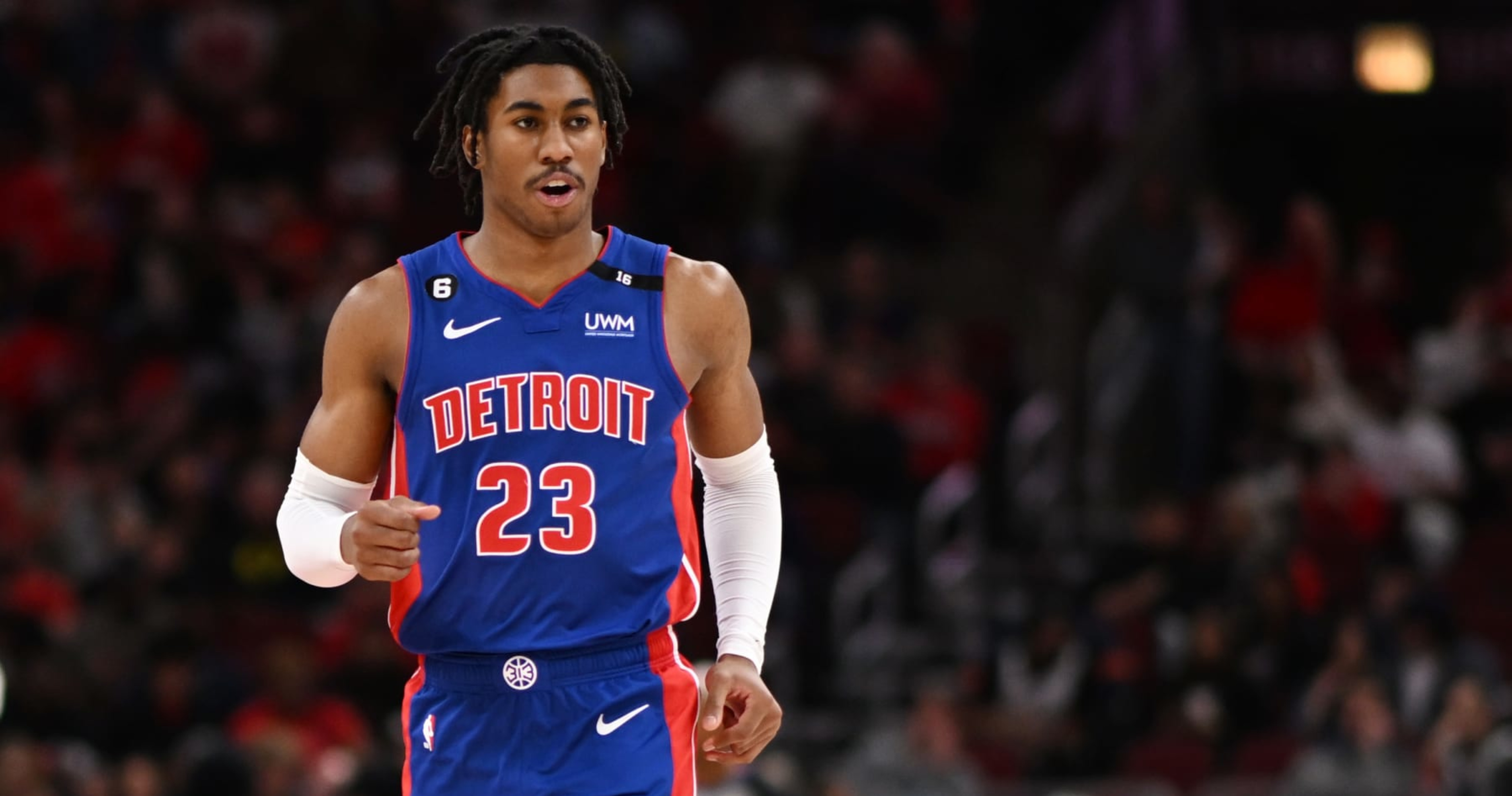
In the realm of college basketball, Jaden Ivey has emerged as one of the most enigmatic and polarizing prospects. The Purdue guard boasts an intriguing blend of athleticism, skill, and potential, but his game is also marked by inconsistencies and questionable decision-making.
Ivey’s most apparent asset is his elite athleticism. He possesses quickness, acceleration, and leaping ability that few others in college basketball can match. His speed and agility allow him to create separation from defenders with ease, both in the open court and in the half-court setting.
Ivey’s explosiveness also translates into impressive finishing at the rim. He can elevate over defenders and absorb contact with ease, making him a dangerous threat in the paint.
One of Ivey’s most unique attributes is his ambidexterity. He is equally comfortable handling the ball and shooting with both hands, which gives him an advantage in attacking defenders. Ivey can create scoring opportunities by driving left or right, and he can finish with either hand at the rim or from mid-range.
While Ivey’s athleticism and skill are undeniable, he is often held back by lapses in his decision-making. He has a tendency to force shots, turn the ball over at inopportune times, and make poor reads in the open court.
Inconsistent Shooting
Ivey’s shooting consistency has been a major question mark throughout his college career. He has shown flashes of brilliance from three-point range, but he also struggles with shot selection and efficiency. His three-point percentage has hovered around 30% in his first two seasons at Purdue.
Defensive Vulnerabilities
Defensively, Ivey faces challenges. His athleticism and quickness allow him to be a disruptive presence in the passing lanes, but he can also be prone to lapses in focus and poor positioning.
Opinions on Ivey’s potential vary widely. Some analysts believe that his combination of athleticism, skill, and versatility make him a potential NBA All-Star. Others express concern about his decision-making and consistency, suggesting that he may never reach his full potential.
Positive Perspective:
“Ivey has all the tools to be a special player in the NBA,” said ESPN analyst Jay Bilas. “His athleticism is off the charts, and he has a unique combination of quickness, strength, and creativity. If he can improve his decision-making and shooting, he could be one of the most dynamic guards in the league.”
Negative Perspective:
“I’m not as convinced about Ivey’s potential,” said college basketball analyst Seth Greenberg. “His decision-making is a major concern, and I’m not sure if he’s ever going to be a reliable shooter from the outside. He has a lot of potential, but he needs to show more consistency and improve his overall game.”
To better understand Ivey’s place among the elite prospects in college basketball, it is helpful to compare him to some of his peers.
| Jaden Ivey | Chet Holmgren | Paolo Banchero | |
|---|---|---|---|
| Position | Guard | Center | Forward |
| Height/Weight | 6’4″, 200 lbs | 7’0″, 195 lbs | 6’10”, 250 lbs |
| Athleticism | Elite | Very good | Good |
| Skill | Good | Excellent | Very good |
| Potential | All-Star | Franchise player | All-Star |
As the table shows, Ivey is a top-tier athlete and has the potential to be a dynamic scorer in the NBA. However, he trails Holmgren and Banchero in terms of skill development and overall potential.
Jaden Ivey is a complex and enigmatic prospect. He possesses undeniable athleticism, skill, and potential, but his game is also marked by inconsistencies and questionable decision-making.
Whether Ivey reaches his full potential depends on his ability to improve his shot selection, decision-making, and defensive focus.
If he can make those improvements, Ivey has the potential to be one of the most exciting and productive guards in the NBA. However, if he fails to overcome his current weaknesses, he may fall short of his elite potential.
